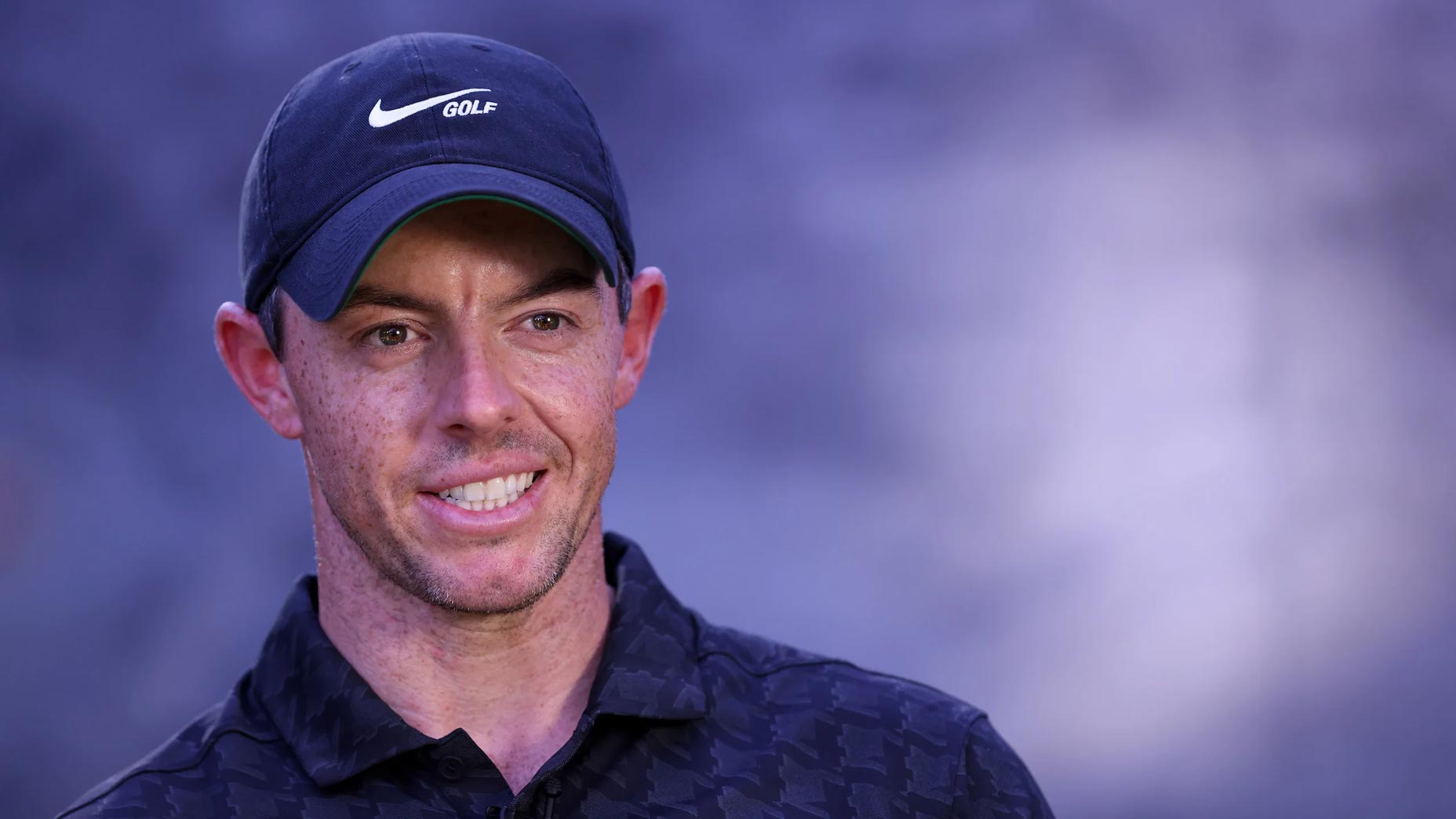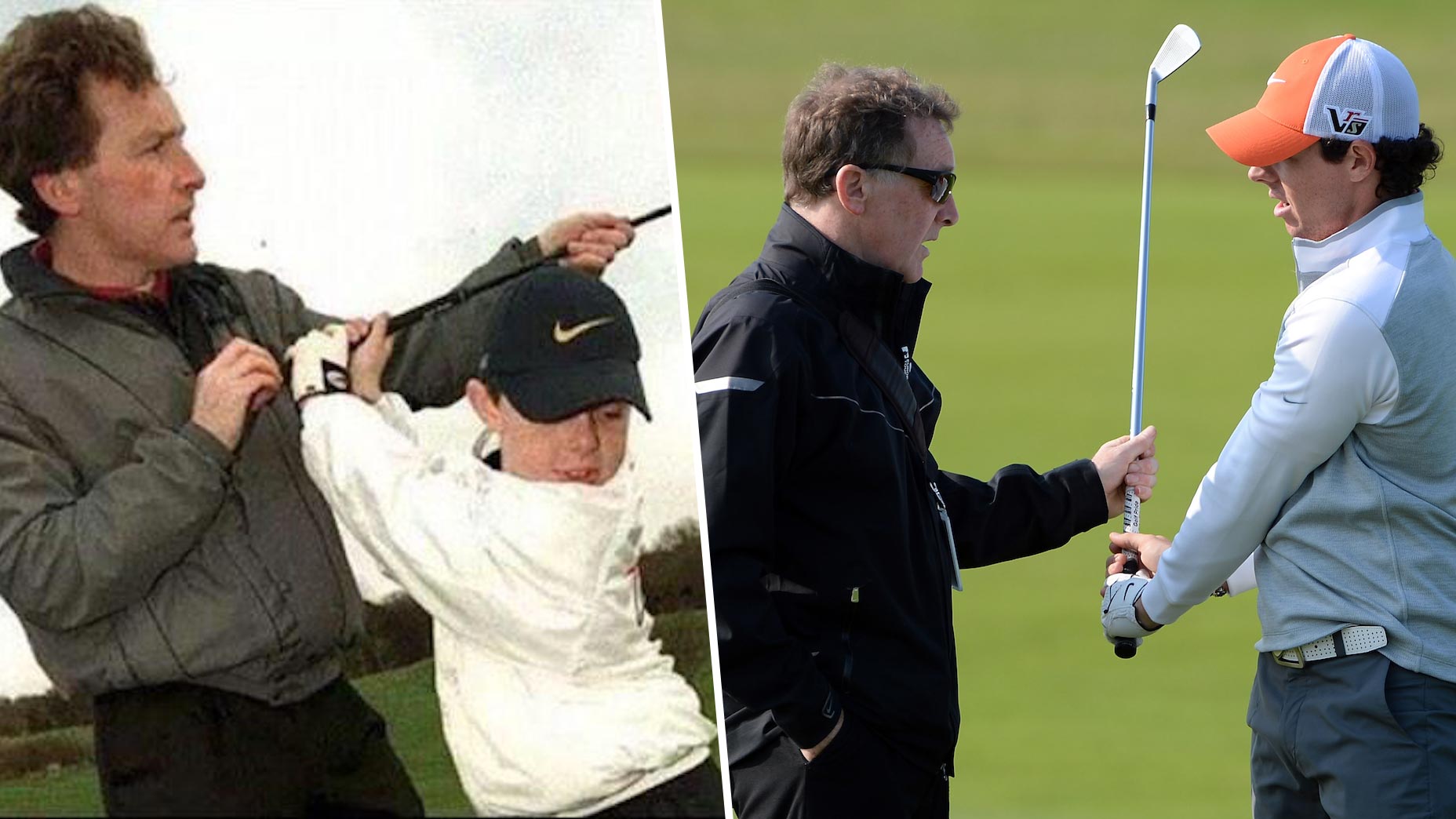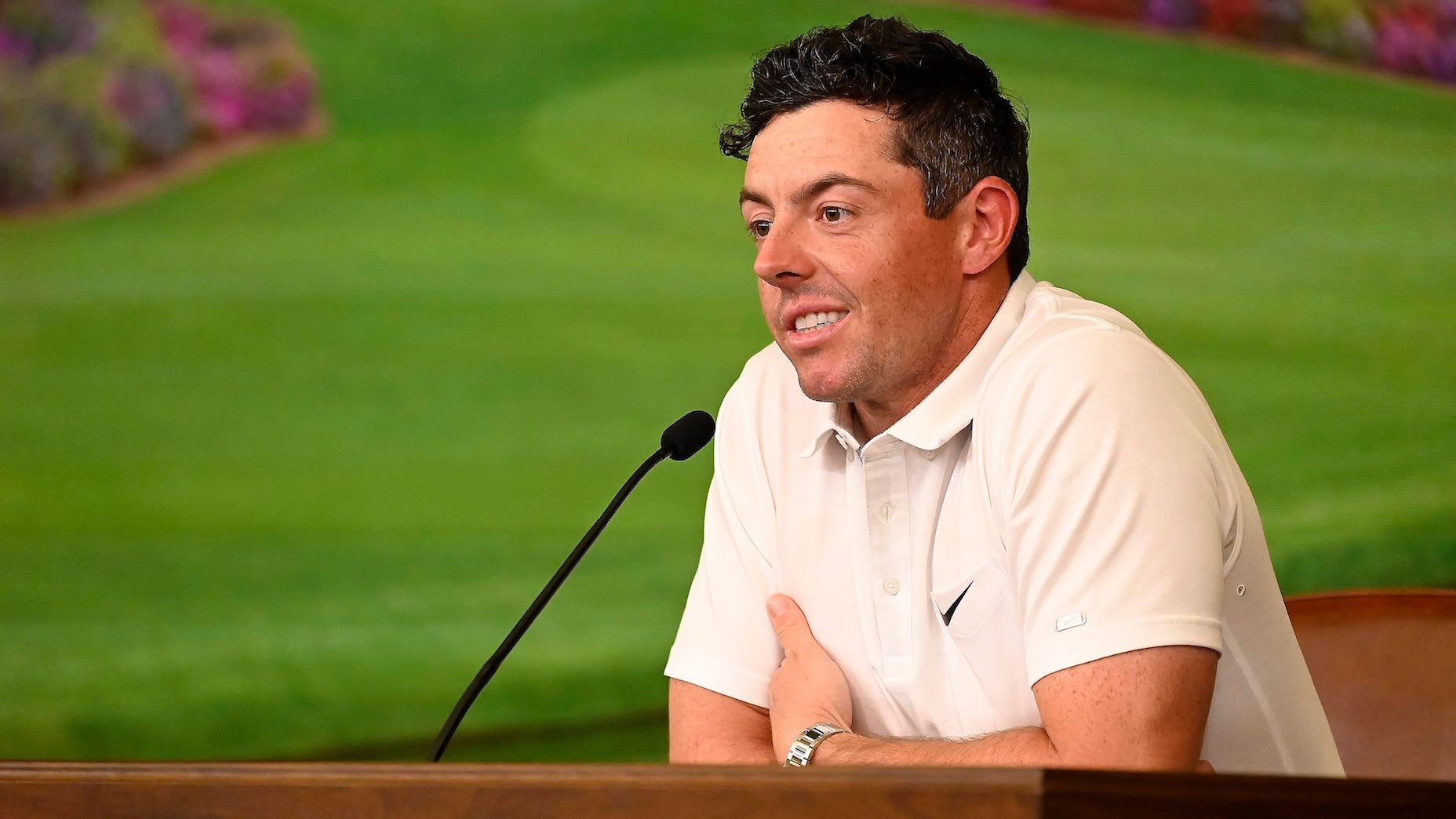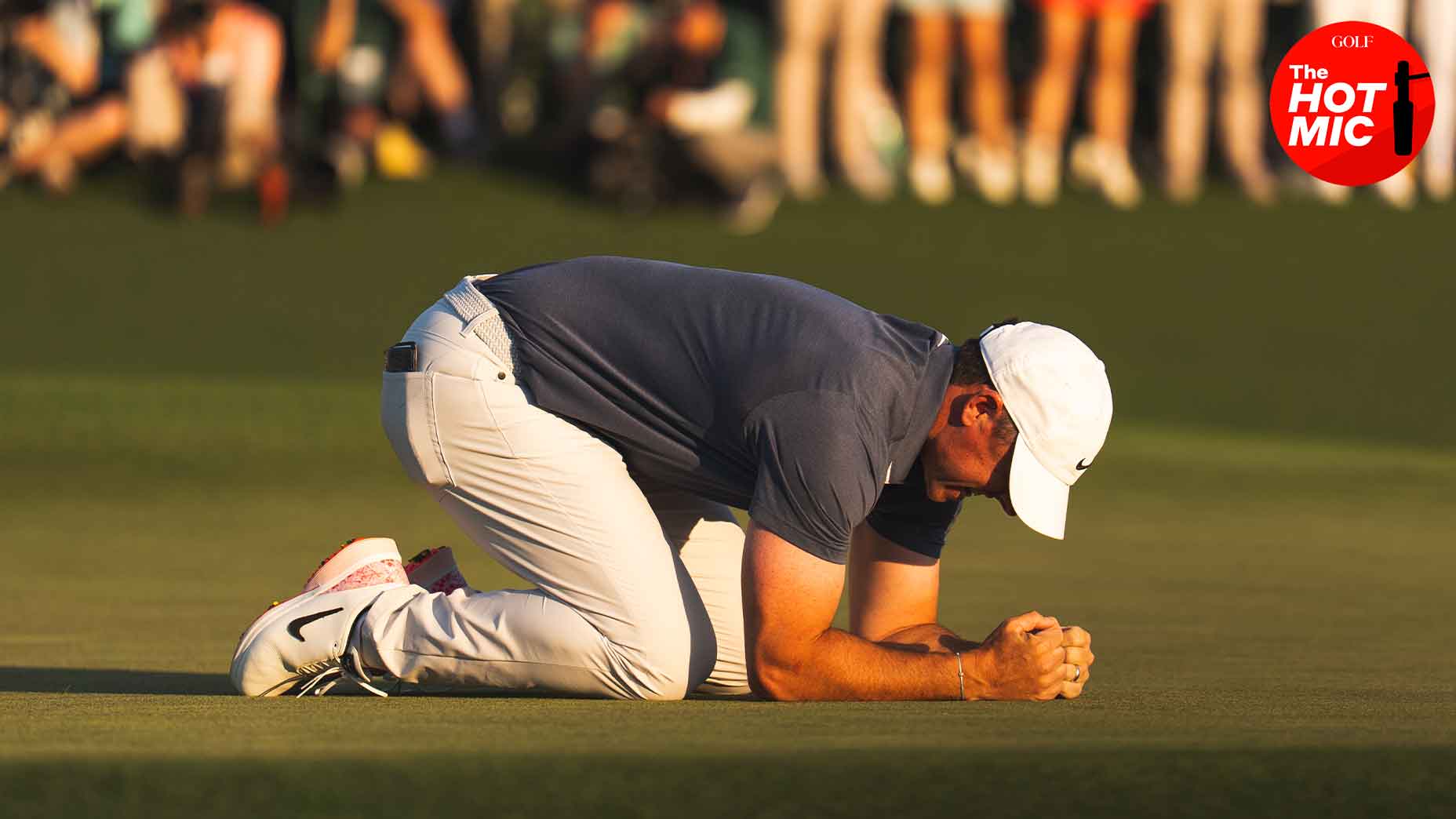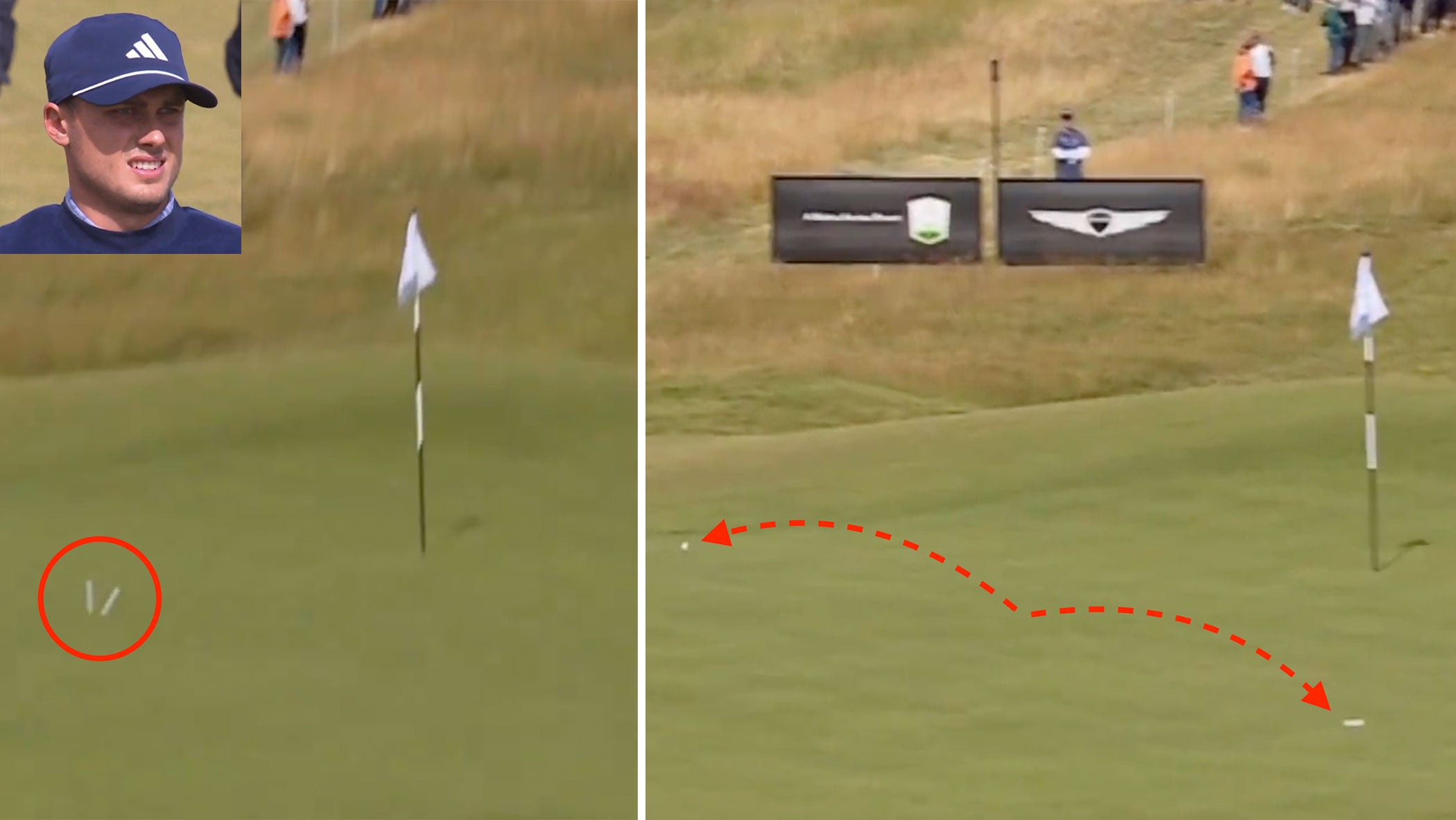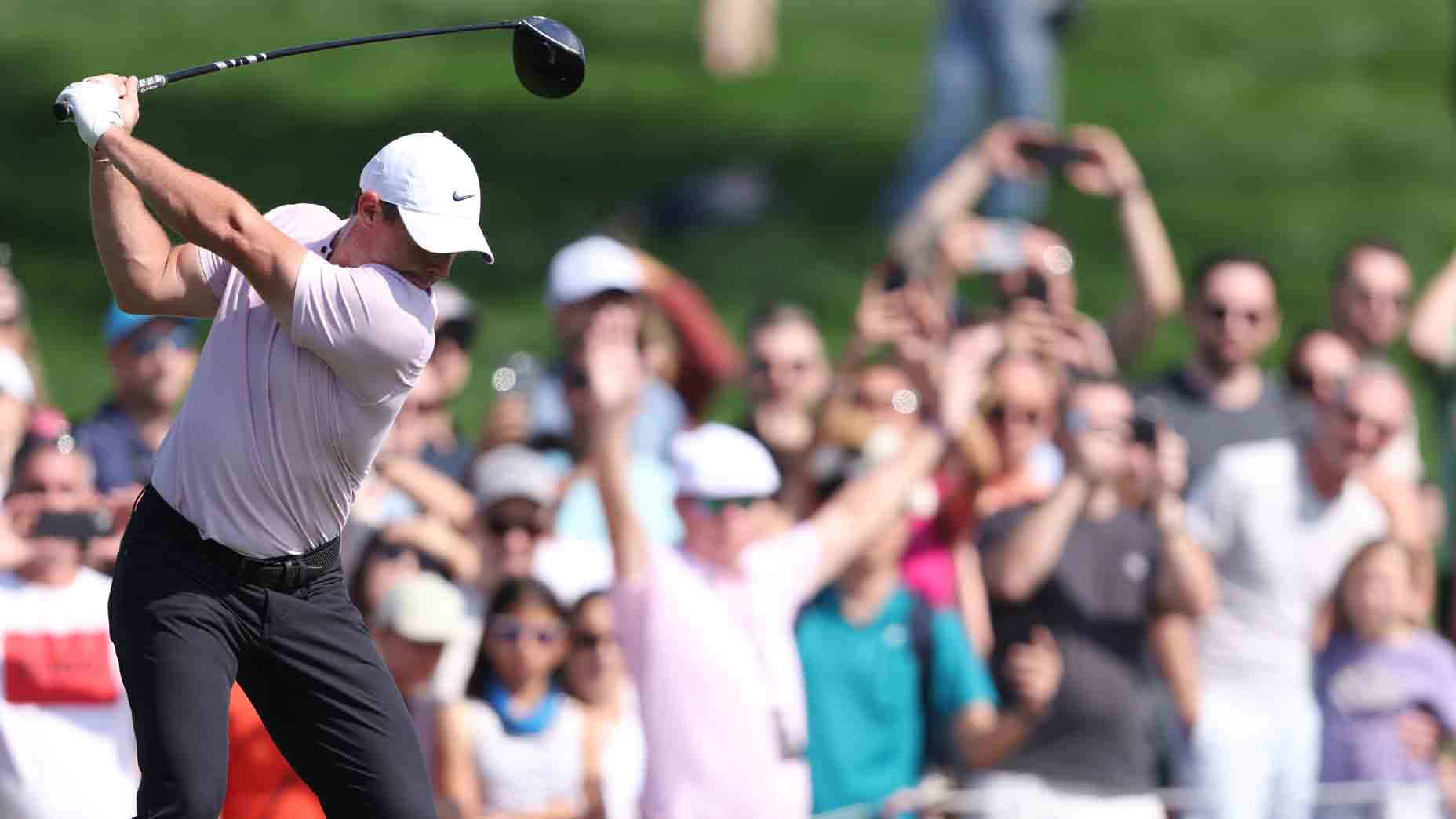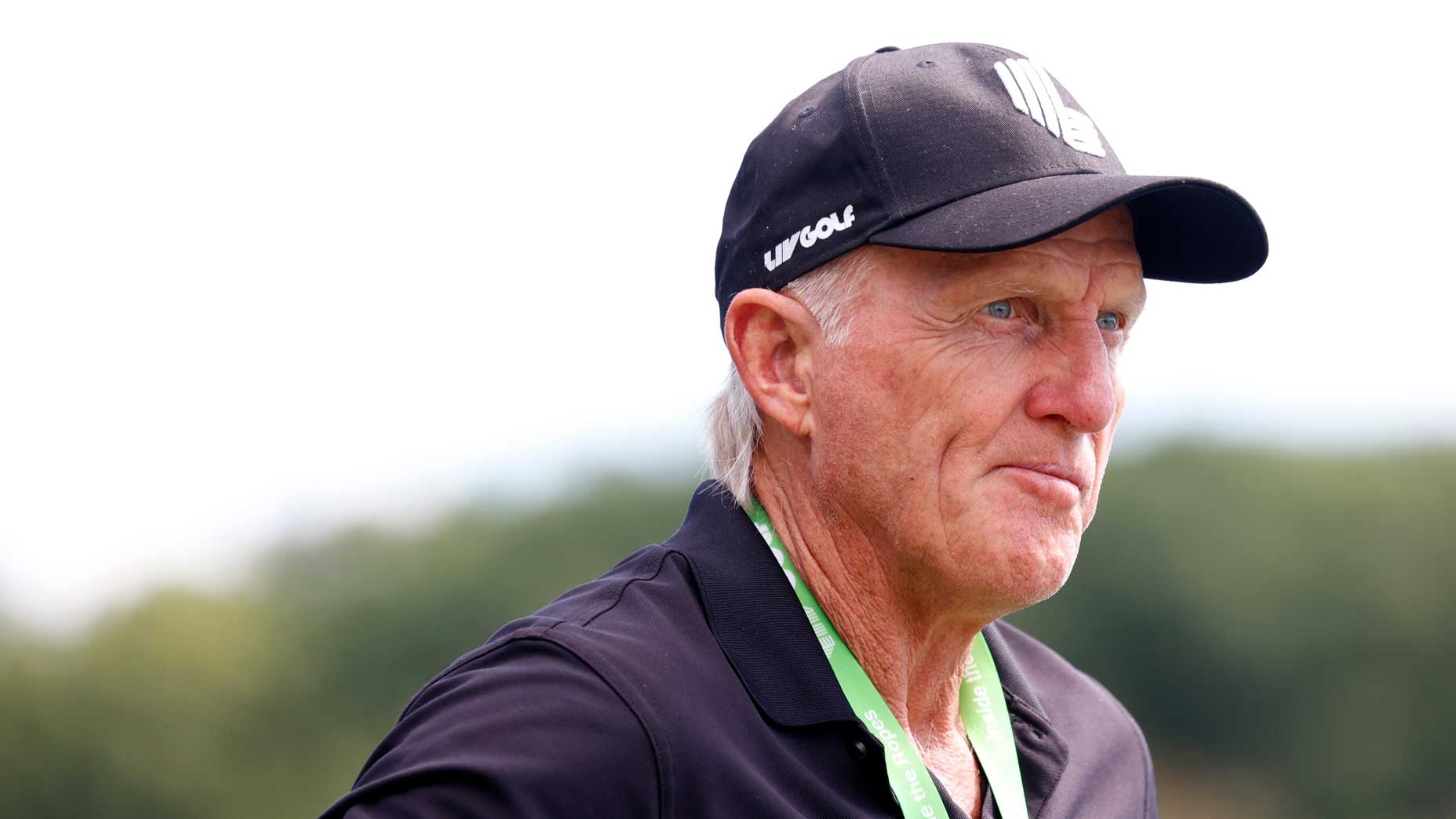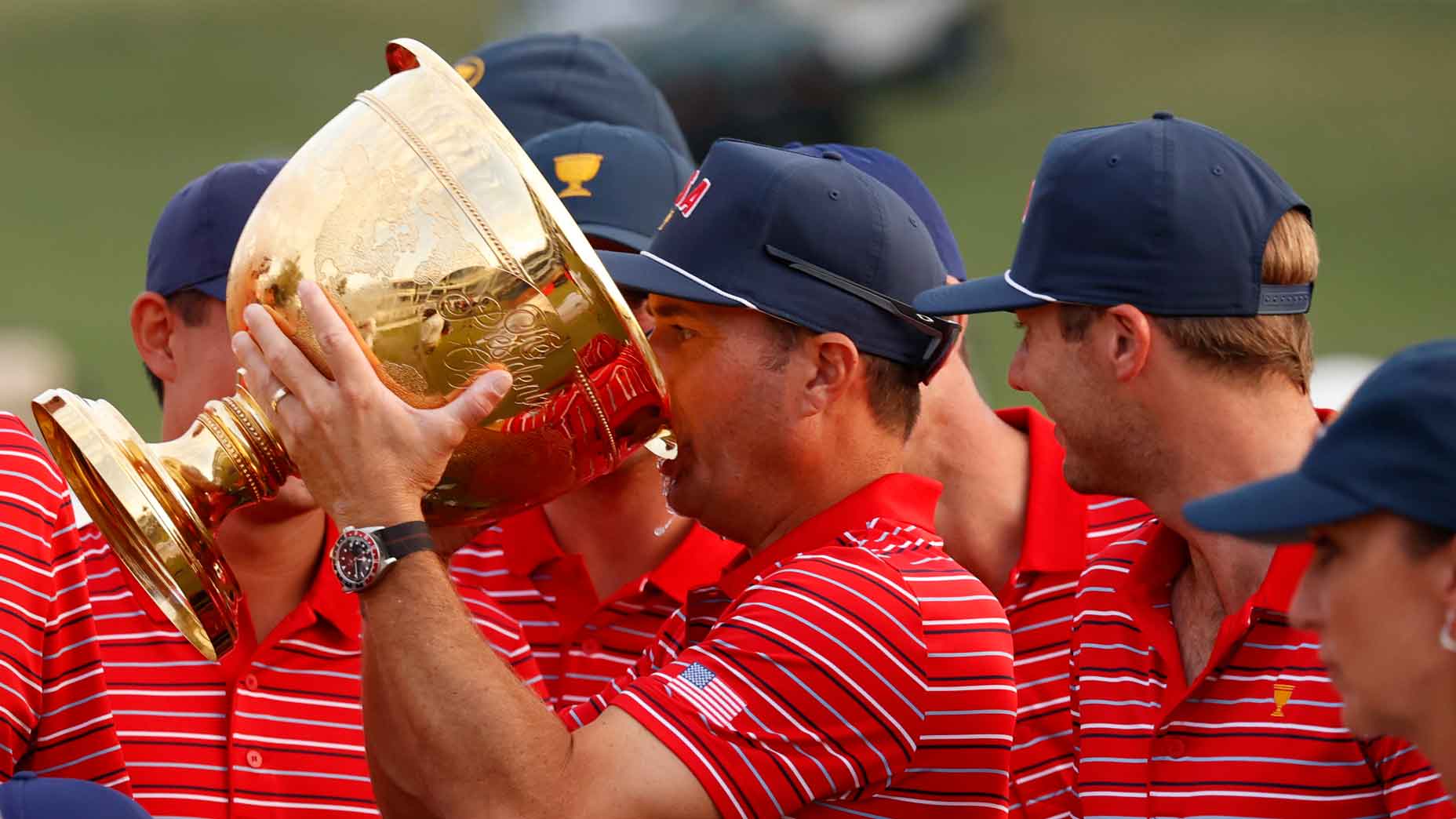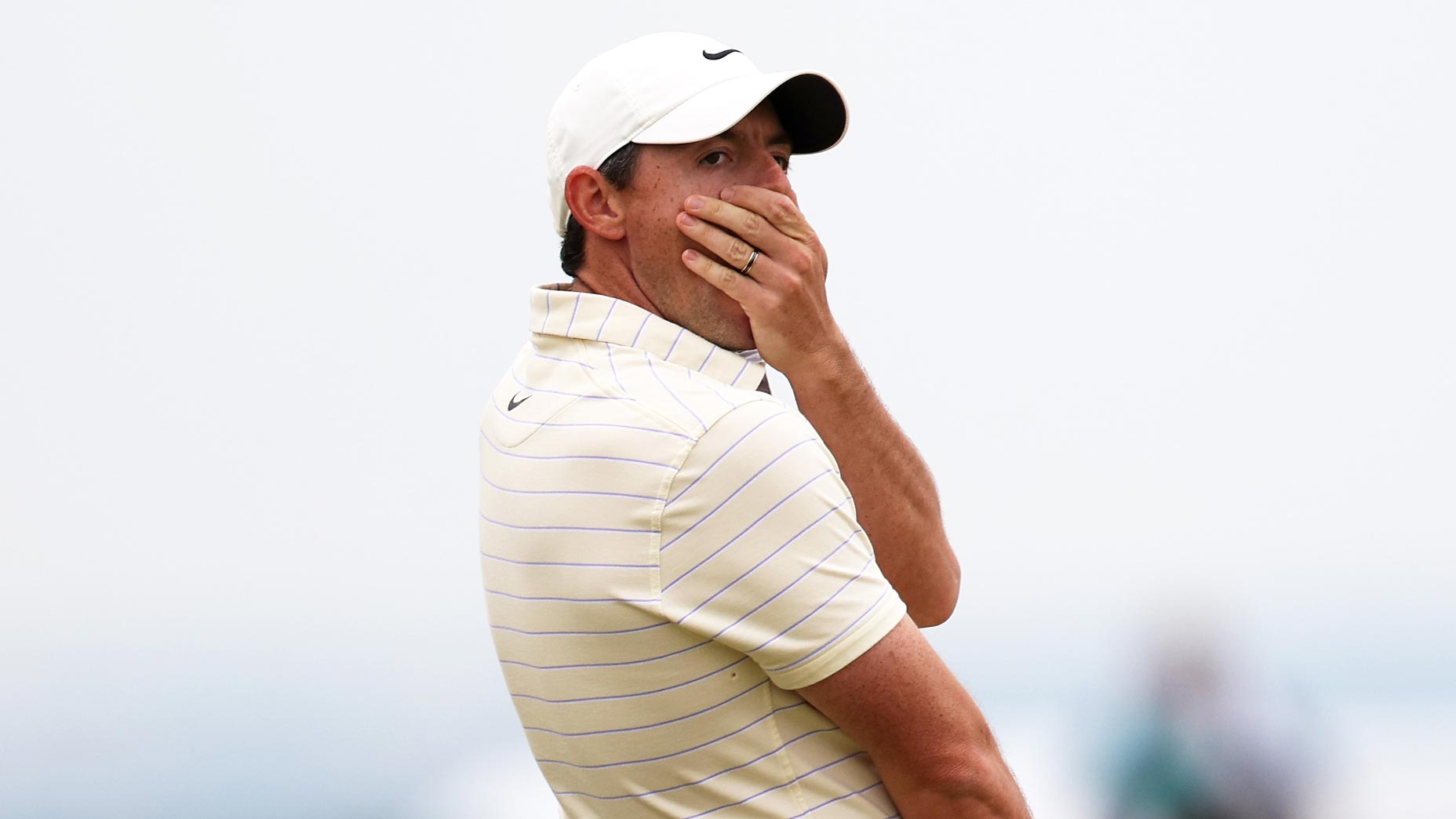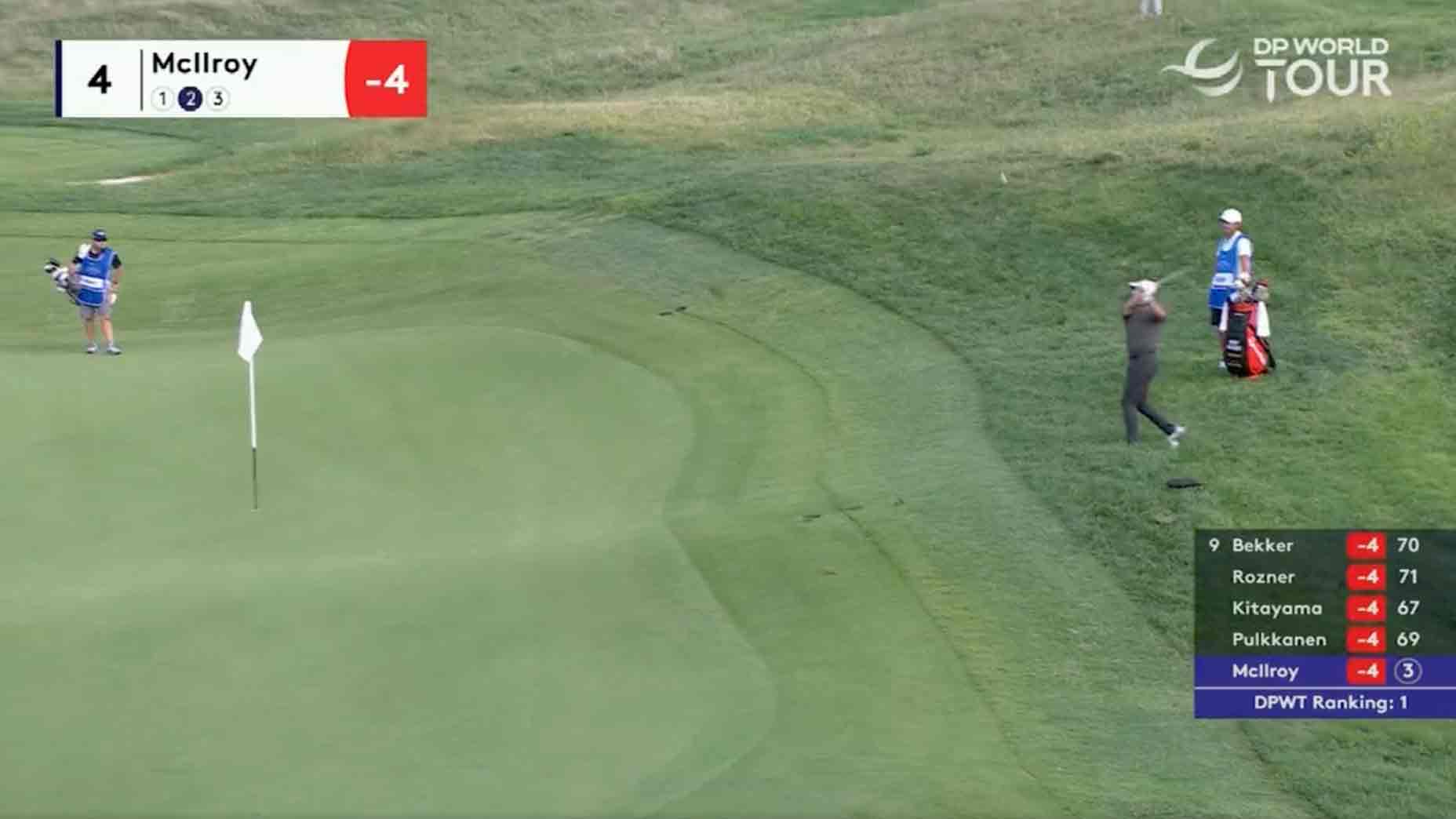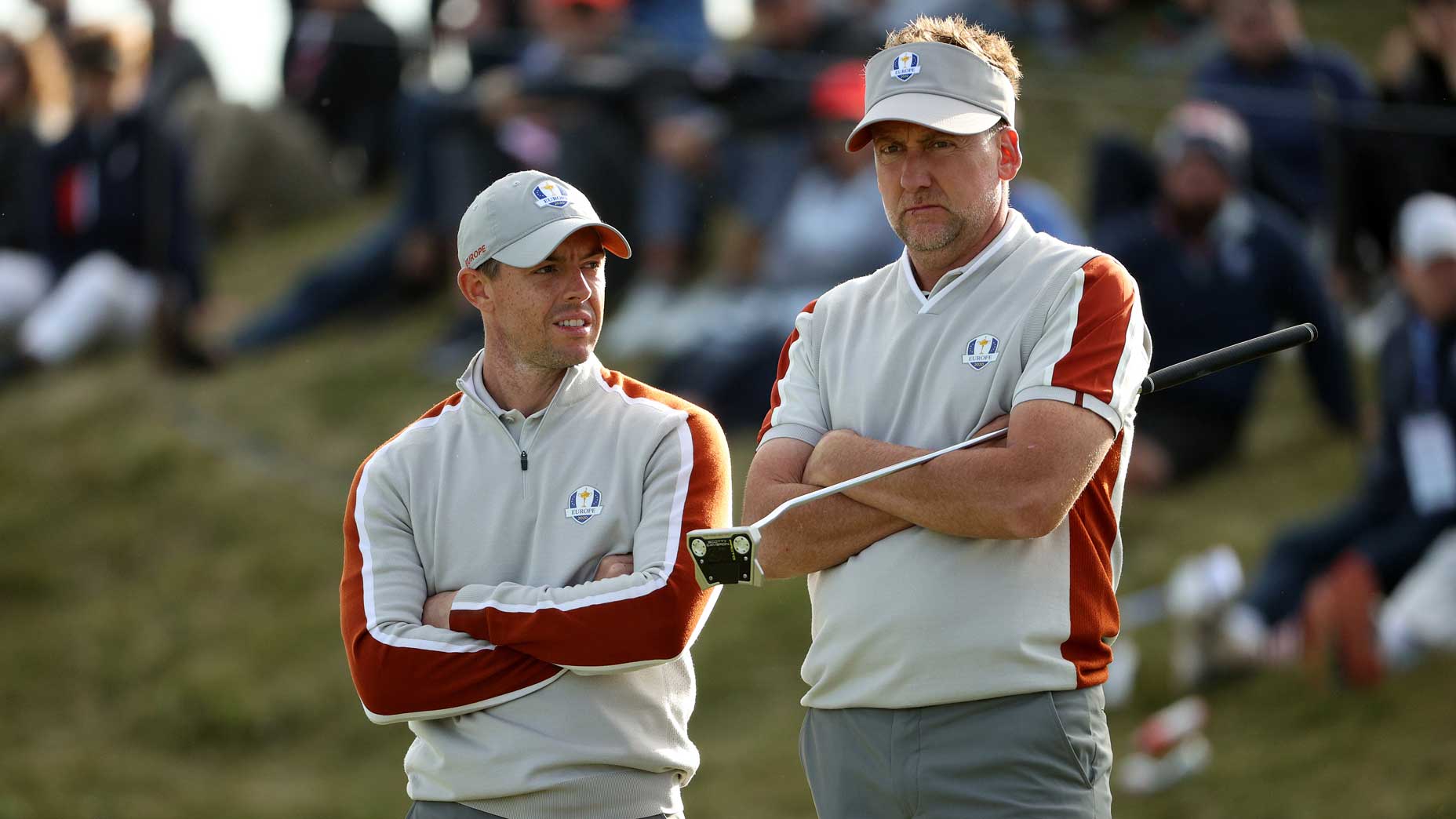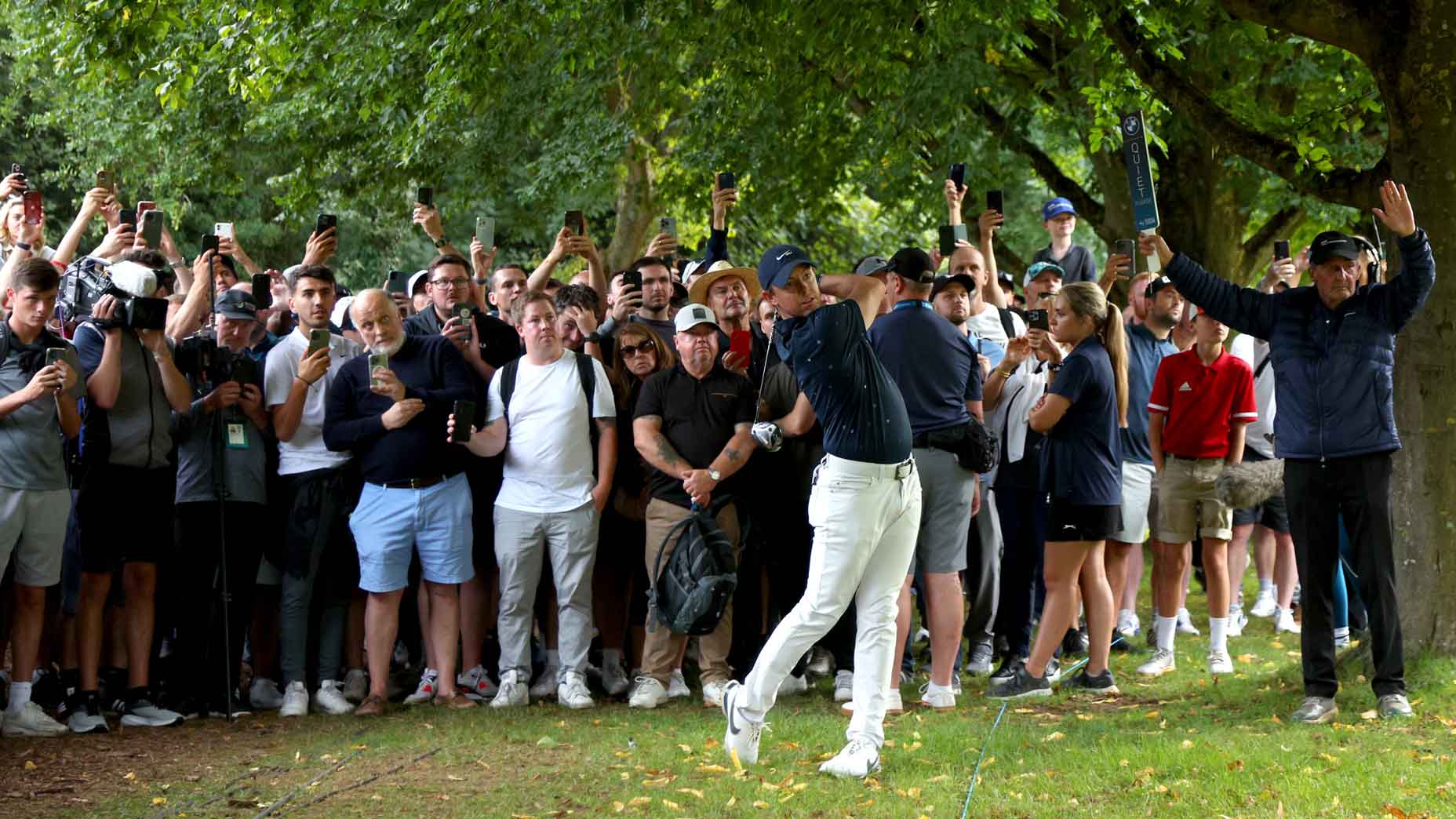It’s Tuesday afternoon in the Bahamas and Rory McIlroy is packing up his stuff.
I’ve been waiting for him at the rear of the driving range. The good news is I’ve just been given a Q&A column, Up Close, in GOLF Magazine. The challenge is that when it comes to finding a proper debut subject, I’m running short on time. But here’s one, right in front of me. I flag McIlroy down as he and caddie Harry Diamond depart the range — and ask if he’ll have 10 free minutes anytime this week, before the Hero World Challenge gets underway.
“Ten entire minutes?” McIlroy asks, incredulous, eyebrows raise. “Of my time?” Then he cracks a grin.
“Nah, no worries,” he says. “We’re not done, we’re just going to play the back nine. Come walk with!”
So I did. And in addition to watching McIlroy pummel high, majestic draws into the sky, I snuck in some questions.
(An abridged version of this interview appears in the Jan-Feb issue of GOLF Magazine)
Dylan Dethier: What gets you excited about beginning a new golf year?
Rory McIlroy: I feel like I’m at a place where I’m really comfortable with my game, so I’m excited for getting to tournaments and carrying that feeling with me. Last season, I felt there were tournaments where I was, like, trying to cram before an exam.
DD: Cram for an exam when you don’t know the material.
RM: A lot of cramming and a lot of stress Monday through Wednesday. This season, I’m looking forward to tournaments where I’m not going to feel like that.
DD: You got off to a nice start a few months ago at the CJ Cup.
RM: I actually watched the whole [Netflix series] Squid Game that week. And I won! That must have been it. [Laughs] Got me in the right mindset.
DD: But first you’ll get some time away. What does that look like and how is it different now that you’re a parent? What do you do for fun when you’re home?
RM: Being home is the fun. Being able to wake up and be like, ‘Okay, what am I going to do today?’ That’s nice. I feel like our lives out here are so structured, like, I know what I’m doing at 1 p.m. and at 2 p.m. and so on. I think just being able to get away from that structure a little bit is nice. Having a little one, you’re at the mercy of their schedule and what they do, right? But it’s great. So I get away from it and I be a dad. Oh, and I get in the gym a little bit, and try to stay active.
DD: How’s your tennis career progressing?
RM: I actually was playing a lot right before Covid hit, early 2020. But then when I get back on Tour it’s like — I intend to play, but then I spend a full day out here and the last thing I want to do is go hit tennis balls. But Harry plays. He actually plays every week with some of the caddies on Tour. Harry — you played with Sergio for what, like two hours on Friday night in Dubai [in the fall]?
Harry Diamond: Yeah.
RM: Yeah. So I’d like to do a little bit more. I’d maybe try to get back on the ball machine a bit at home and get back into it. We’ll see.
DD: I was at Tiger’s press conference and he said when he got injured, he started getting obsessed with these really simple golf pleasures, like the idea of catching a chip shot crisp. Twenty years ago it’s tough to imagine him expressing that. You lack the near-death experience, as far as I know —
RM: I mean, the rib was pretty bad. [laughing]
DD: —but this is your 15th season as a pro. How has your appreciation for golf shifted over time?
RM: What pops to mind is getting inside the ropes on tournament days, because it’s literally the one place on earth that no one can get to me. I don’t have my phone. I don’t have anything. I used to love long flights because I could turn my phone off. Now I even have Wi-Fi on the plane. The course is the one place where you can just be. It’s a cocoon for four or five hours. I really enjoy that.
DD: Sounds like you miss your anonymity.
RM: I do. But I also appreciate the position that I’m in, and I try to wear it as well as I can, if that makes sense. No one wears it as well as Steph Curry. Steph Curry loves being Steph Curry. And I love being who I am. But sometimes I resent it if I’m just trying to have a nice meal with my family or whatever. I’m not famous like Tiger Woods, but I’m probably more famous than most golfers, and I accept that.
DD: You started talking a few months ago about getting back to some form of essentialism. And then you won and then you almost won after that. You talked about being yourself, about original Rory. What does that mean?
RM: I got to a place where I was struggling with my game, whenever it was, around the Players last March. And I thought technique was what I needed. And I did, partly. Like, the club was getting behind me too early and then just causing all sorts of problems. So I just I felt like I needed to go a different direction for a while. On reflection, it was me sort of looking to other people to fix my problems.
DD: And that’s when you went to working more fully with Pete Cowen?
RM: Yeah and look, I learned a lot from Pete and we did some really good work. And I think I improved as a player while working with Pete. So I certainly do not regret doing that at all. But I’ve always been a player that’s been able to self-diagnose and correct myself. And it was the first time in my career where I couldn’t do that, and I felt that was one of the first times where I didn’t actually own my swing, I didn’t own what I was doing.
I’ve never been that way. And it reached a head at the Ryder Cup and I just didn’t play well. And I played better on that Sunday [in singles] because I just tried to clear my mind of everything. That was a big realization to me. I was like, ‘Well, I went out there today with no swing thought, with nothing. And I played the best I’ve played in a long while.’
It was just a big realization. So after that Sunday, I was like, I need to do this on my own, but I can’t just do it on my own. I need some sort of guidance. So I called Michael [Bannon] that day after the Ryder Cup and said, ‘Look, I’d love to see you again and try to work this out.’ And it’s funny, we had planned to see each other, for him to come over the Monday after the CJ Cup — and then I won.
Raising Rory: What McIlroy’s lifelong coach learned from raising a golf legendBy: Dylan Dethier
So I was like, ‘Yeah, well, I think we’re halfway there.’
With Michael, I’ve always been the one that’s taken the reins in terms of like, ‘This is the direction I want to go. Tell me if I’m completely off base and if not, then, you know, just let me develop my own feelings, right?’ And that’s what we do.
DD: Michael is a fascinating character to me because with many top coaches, part of the gig is being a marketer and a self-promoter. He doesn’t seem to have that streak in him. Is there something comforting about that?
RM: I mean, yeah. Take the fact that he and I didn’t work together, really, for six months and he didn’t say a single thing. I appreciate that — and that’s just the way Michael is. He hasn’t said a thing since; that’s not him. He doesn’t like talking to the media. He wants to do what he can for me and he enjoys his life. He has a great family and that’s what’s important to him.
DD: Do you read stuff about yourself?
RM: I avoid it at all costs. I had this bad habit where I would read stuff when it was positive but not read stuff when it was negative. But I think that’s just as bad, so I decided it’s healthier for me not to read anything.
DD: Is that true of social media as well? Do you scroll Instagram? Twitter?
RM: Instagram, yes. Twitter… no.
DD: You hesitated.
RM: I get some news from Twitter. I don’t have access to my Twitter account, so I just go on, like, “What’s Trending,” and find it there. The one thing I will say is the less social media in this world, the better. I see the merits of it, but I think it has started to cause more harm than good.
DD: Do you have a burner?
RM: No. [laughing] I wish I did. No UseGolfFACTS.
DD: But you’ll read about golf in general?
RM: Yeah, yeah! I’m a golf fan.
DD: Do you count guys on Tour among your close friends?
RM: Some of them. Maybe one or two.
DD: Do you want to say who they are?
RM: No, not really. I’m pretty amiable; I get along with pretty much everyone. But close friends that I’ll, like, call or go out to dinner with? Maybe it’s five, max. But mostly one or two.
DD: Is that a conscious choice or just the way things happen?
RM: Just the way things happen. I’ve got a good set of friends that I’ve had for a long time, and I guess that’s enough for me. There was a point in time where I felt like I traveled with an entourage—not of, like, hangers-on or friends, but a physio, a trainer, a caddie, a coach and so on. But my favorite weeks are where it’s just Harry and me or just Harry, me and [my wife] Erica.
I remember the week before the U.S. Open at Shinnecock [in 2018]. We played a bunch, rented this big house in Southampton, and there were quite a few of us there. The next week, at Hartford, we were staying in this run-of-the-mill Marriott — just me and Harry and Erica — and I’m like, “I like this better.” That was a big realization.
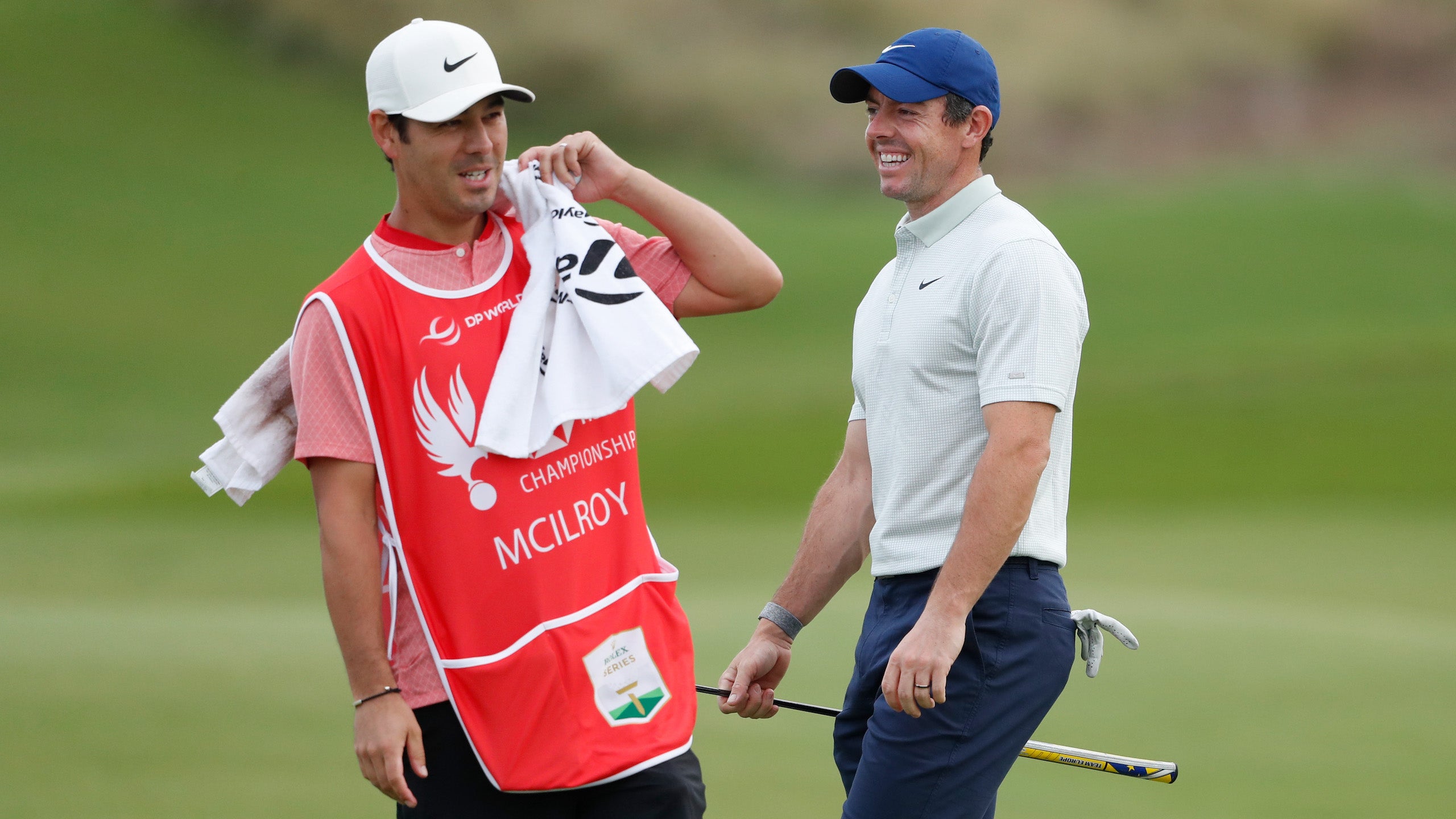
DD: There’s always been plenty of attention paid to your player-caddie relationships. Now you’ve been with Harry since 2017. How has the relationship evolved?
RM: Wow. At first it was two weeks — we were going to do the PGA Championship and see how we went. And I’ve obviously enjoyed having him on the bag. Our ultimate goal is winning majors together. Two guys that grew up together, from a small town in Northern Ireland? That’s a dream. [Calls Diamond over] It’s not as if we haven’t won. I mean, we’ve won some big stuff together already. Just no majors.
Harry: Everything but!
RM: Everything but. So it’s been awesome. The relationship hasn’t changed that much, honestly.
DD: Harry, what does Rory do when he’s playing well?
Harry: Very little. Like, very little thought. I always feel like he gets a bit quicker, which is good. So I just try to stay out ahead of him. If you’re trying to think too much, you’re going to think about the wrong things, in a way.
DD: So you literally try to stay in front of him?
Harry: Yeah and I try to think one or two shots ahead of him because if he’s playing well, he’s just rolling and he wants a number, he wants a landing spot, he wants the wind and he wants to just go quickly, y’know?
DD: What about when it’s not going well? Too much thinking? Or just stuck not knowing what to work on?
RM: Yeah, just a little too much thought. We talked about it a bit after the Ryder Cup. I’m so into my swing that I’ll maybe hit a shot to like, 30 feet with a wedge. And I’m still thinking about the shot and the swing that I made that I’m not even thinking about the putt, which means I’m not playing golf. I’m just thinking about stuff I shouldn’t be thinking about. And so when I play well, I’m more into what I’m doing and I’m actually…
Harry: …you’re thinking your way around the course better, too. Instead of thinking about your swing, you’re thinking about what you’re going to do on the next shot.
DD: But when it comes to majors, which I know you’re focused on, it has to be tough to take that low-key approach.
RM: It’s hard to make it feel like a normal week. I think you have to embrace the fact that it’s not a normal week. And you have to do some things to produce your best golf.
DD: You talked about that at the Masters last spring. You’d just been to see Tiger, and you asked him where he kept his non-major trophies. He genuinely had no idea. That stuck with you. Why?
RM: What I didn’t get to say at the time is that it was so authentic. All Tiger has talked about his whole career is just winning majors, right? That’s all that matters. Then you go to his house and you see the trophies for [just] the majors, and he said to me, “Yeah, I don’t really know where the rest of them are.” He’s not bulls—ing. That was authentic. That is literally [the truth of it]. I thought that was cool.
DD: What do you make of Tiger in this phase of his career?
RM: It was always going to come. At some point he wasn’t going to play as much. It’s probably come a little sooner than we all hoped. And I’ve seen him mellow a bunch as the years have gone on, even from my first interactions with him in ’09. So I think he’s a more balanced and well-rounded individual because of it all. And I think that’s a good thing; I think it puts all of his achievements in perspective a little bit.
Rory McIlroy visited Tiger Woods and came away with a terrific storyBy: Dylan Dethier
I love every version of Tiger, but I like this version because he’s — I always call him this mythical man in a red shirt but he seems more human to me, more relatable, and I think that’s a good thing.
DD: Do you talk to him much?
RM: A little bit, yeah. From time to time. We text. I’ve been to see him. JT got really close to him. But it’s this thing where I grew up watching this guy as my hero and I sort of think, like — you don’t want to be friends with me. It’s the same thing when I play golf with Michael Jordan, which I do probably once a week at home, and I’m always thinking about these are people I never imagined I’d be hanging out with. And so it’s hard to put them in a category. Are they friends? Who are they? I struggle with that.
DD: What’s something no one ever asks you that you want to talk about?
RM: I don’t want to talk much more about anything, really. [Brief pause] But, I mean, we could get into all sorts of stuff. I’ve sort of gotten into the business side of things, we’ve started to do some investing. We could talk current affairs, I don’t know. The world’s a very strange place at the moment. So it’s — it’s a weird — the world is just a very polarized place, and so…[trails off]
DD: It is, as I can tell from the care with which you’re choosing your words.
RM: It’s funny, I think it’s such a weird place that like some days I feel myself fall on one side of the argument and then another days I’ll fall on the other side.
DD: Does that make you a pretty politically moderate guy?
RM: Yeah. Common sense. I just think there are merits to different ways of governing. But it’s hard, whenever you have to get votes, you have to pigeonhole yourself to like, this one ideal. I read a quote recently where like, ‘ideals are the downfall of mankind.’ You can’t just have one ideal because it doesn’t work.
So I don’t know. I’m like, well, I see the merits of that and I see the merits of that. Couldn’t we go and mesh them together a bit?
DD: You’re not pro-conflict.
RM: No, not at all. I’ll do anything to avoid conflict.
DD: Like continue to put up with this interview. Is Harry the same way?
RM: Eh, yeah. Most of the time. Harry’s a lover. Except on the tennis court.
DD: Last one. Your daughter, Poppy, isn’t quite yet a year and a half old. She’s got a ways to go, but do you hope she might grow up to be a golfer?
RM: I’d like her to like golf, whatever that means. I’d like her to take an interest in it. I certainly won’t push her toward doing what I do for a living, but I’d like her to enjoy golf. I mean, I think it’s such a great game. You can play it your entire life. You meet so many great people along the way. I appreciate that even more so now than I used to. Really, there’s no other game in the world like that. So, yeah, I hope it’s a part of her life.
